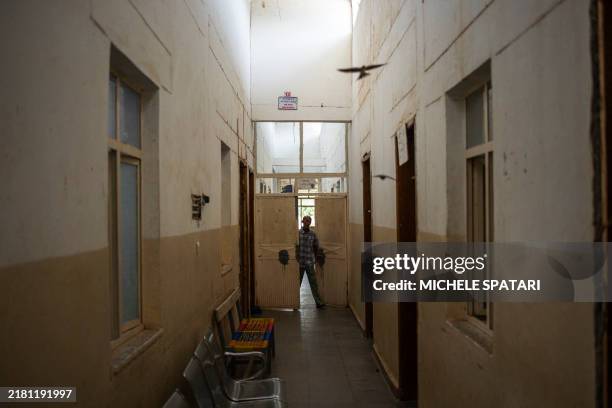By Meron Desta, Staff Writer
ADDIS ABABA, Ethiopia – In hospitals across Ethiopia, silence now fills once-bustling corridors. Operating rooms sit idle. Waiting areas are packed with patients, but few doctors remain.
A nationwide strike by thousands of medical professionals has plunged Ethiopia into its worst healthcare crisis in recent memory, halting essential services and exposing deep structural cracks in the country’s fragile medical system.
The strike, which began late last week, was organized by the Ethiopian Medical Professionals Association (EMPA), representing doctors, interns, and specialists. At the heart of the protest: stagnant wages, unsafe working conditions, and chronic underinvestment in the health sector.
“We are exhausted and ignored,” said Dr. Yared Bekele, a surgical resident in Addis Ababa. “Many of us work 36-hour shifts with outdated equipment and are paid less than what it costs to survive in the capital. This is not sustainable—for us or our patients.”
Government hospitals in major cities—including Addis Ababa, Dire Dawa, and Bahir Dar—have suspended elective surgeries, outpatient services, and even emergency operations in some cases. In rural areas, clinics that once served as lifelines for remote communities have shuttered entirely.
According to the Ministry of Health, talks with EMPA are ongoing. Officials have acknowledged the doctors’ grievances but warn that prolonged disruption could result in preventable deaths and widespread suffering. In a televised statement on Sunday, Health Minister Dr. Mulu Nega urged striking doctors to return to work while negotiations continue.
But union leaders remain firm. “Doctors have been on the front lines during pandemics, conflicts, and resource shortages,” said EMPA Secretary-General Dr. Sofia Mengistu.
“Yet the government has failed to invest in us. This strike is not a rebellion—it’s a last resort.”
The strike comes amid broader economic hardship in Ethiopia, where inflation has eroded public sector salaries and forced thousands of skilled workers to seek opportunities abroad.
The country has also faced mounting debt and a recent pivot to a flexible exchange rate regime, leaving ministries—including health—struggling to maintain service delivery.
Critics argue that the health crisis reflects a deeper governance problem.
“For too long, the Ethiopian state has neglected healthcare workers while prioritizing military spending and mega-infrastructure projects,” said Dr. Samuel Ayele, a health policy expert at the University of Gondar.
“Now, the system is collapsing under its own weight.”
The World Health Organization and international NGOs have expressed concern, warning that Ethiopia’s already overstretched health system is now at risk of systemic failure, particularly in maternal health, emergency surgery, and infectious disease surveillance.
As patients wait outside closed clinics and families scramble to find care for loved ones, many fear that unless the government acts swiftly, the crisis could deepen into a full-scale public health emergency.
“We took an oath to save lives,” said Dr. Yared. “But we are human too. If we fall, the entire system falls with us.”





